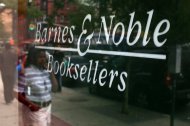 Spencer Platt/Getty
Spencer Platt/Getty
You might have thought that with Borders shutting down, Barnes and Noble would be sitting in the catbird seat. They're now practically the only place in America where you can go to get your hands on an actual physical book before you buy it. Sadly, the reality is not so cheery: with Nook sales weak, Barnes and Noble is closing a bunch of stores, including a high profile local store, in DC's Union Station.
That is why we are staging this intervention. Whenever you see someone you love doing something that is hurting them and you, you feel bound to say something. Absence does not make the heart grow fonder, where books are concerned. Seldom seen and soon forgot seems to be more likely to be the model. Why would you assume that if there are fewer Barnes & Nobles, there will suddenly be more people dashing to BN.com?
And physical bookstores are — as even Klipper noted — not unprofitable. Is getting rid of them really such a good way to save money?
Physical bookstores still serve a vital role as showcases for books. These are places where people encounter many titles for the first time, titles we may decide to buy later, or may just take with us to the restroom and linger over in blatant defiance of the posted signs. We certainly would not know that Teen Paranormal Romance was such a unified genre if you did not display it so beautifully. Their ability to bring us into contact with hundreds of things we did not know we wanted is not to be underestimated. And they help even the online trade. Twenty-four percent of people who bought books from online retailers did so after seeing them in real live bookstores first, according to a 2011 survey. Yes, this is irksome if you are the book retailer, but it’s critical publicity for the book. Lose the showrooms, and the Book suffers.
As a matter of fact, closing bookstores is a good way to save money. It pains me to say this. Some of the happiest hours of my childhood were spent curled up behind the shelves of two bookstores-Shakespeare and Company and Murder Ink-on New York's Upper West Side. But the sad fact is that Amazon is crushing the margins of physical retailers, including bookstores, in two ways. Fewer customers are coming to the stores, as people let their fingers do the walking instead. And Amazon's low prices have forced retailers to cut their prices to stay competitive. As a result, many stores are unprofitable, borderline profitable, or experiencing declining revenue. It's true that having a physical bookstore around probably means that more books get sold. But it doesn't seem to be true that those extra book sales produce enough revenue to cover the cost of all that lovingly organized and curated real estate.
Source: www.thedailybeast.com
You might also like:
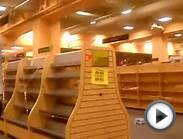

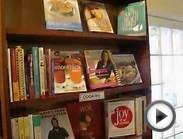
Related posts:






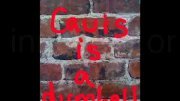

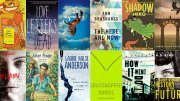















Gothic literature is a style popular during the end of the 18th century & early 19th, usually portraying tales of "dark" subjects.